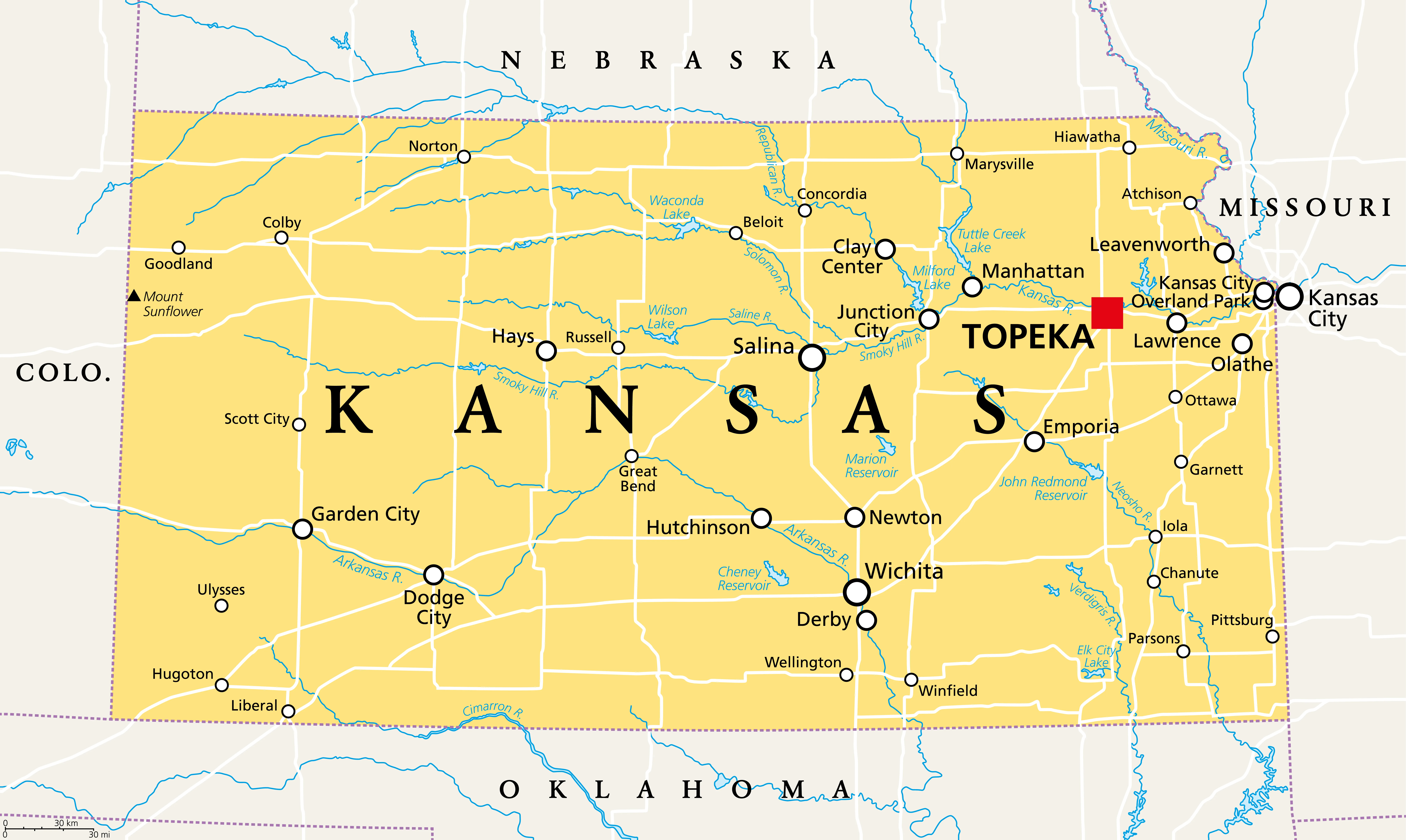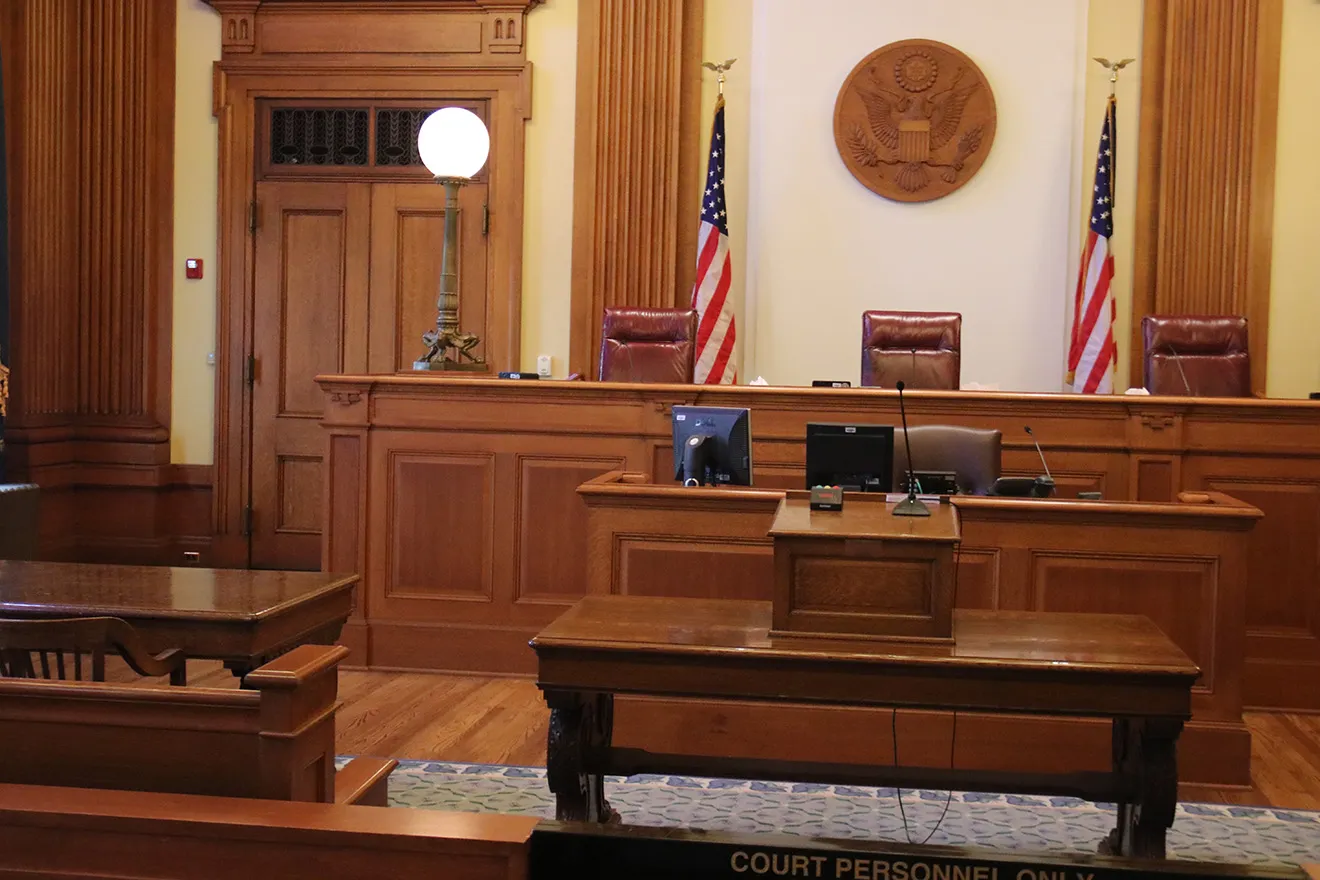
Kansas sues social media app Snapchat for harming teenagers’ mental health and well-being
Kansas Attorney General Kris Kobach filed a lawsuit Tuesday against Snap Inc., the parent company of social media platform Snapchat, accusing the app’s creators of harming teenagers.
He said the company designed the social media platform “with manipulative features that prey on the mental health of our children.” He said Snapchat has been marketed as safe for teens.
“We allege it is not,” Kobach said.
He added: “They have prioritized profit over safety, and our lawsuit holds them accountable for the devastating harm caused to Kansas families.”
The 40-page lawsuit, filed in Washington County on Kansas’ northern border, contains redactions and compiles information from internal Snap reports, news interviews and content from the app to build its case.

© PeterHermesFurian - iStock-1352430281
It alleges Snap violated the Kansas Consumer Protection Act. Those violations are based on the app’s age rating in app stores, around 12 years old and up, and app store disclaimers citing infrequent or mild profanity, mature and suggestive themes, sexual content, nudity and substance use or references.
“In reality, content in all of those categories appears frequently and is intense on Snapchat,” the lawsuit reads.
The lawsuit references the death of a teenage boy from Shawnee, who died in 2021of fentanyl poisoning after reportedly purchasing from a drug dealer on Snapchat.
“Numerous young people, including young people in Washington County, Kansas, have been exposed to drug dealers on Snapchat offering illicit or regulated drugs for sale,” the lawsuit said. “Such content on Snapchat includes posts featuring lists of drugs and prices.”
That was the only mention of Washington County residents, of whom there are around 5,500, in the lawsuit.
A Snap spokesperson said in a statement that the safety of users is a top priority. The company didn’t directly address the lawsuit but said it has incorporated privacy and safety features into the app since its inception.
“Unfortunately, the reality is this — there is no single safety feature or policy that can eliminate every potential threat online or in the world around us,” the statement said. “This is why we continually adapt our strategies to fight against bad actors, who change their tactics to exploit online platforms for their nefarious ends, and this will remain a crucial part of our efforts to help keep Snapchatters safe.”
For the past three years, the company has commissioned research into the experiences of Gen Z teens and young adults from six countries, including the United States, on online platforms.

The 2024 surveys asked more than 9,000 people — around 3,000 teens, 3,000 young adults ages 18-24 and 3,000 parents of teenage children — about online risks, digital wellbeing, defense against online threats and sextortion.
The survey found that online risk was at a three-year high for Gen Z users in 2024. Misinformation, hate speech and bullying, sexual risks, threats of violence, impersonation, extremist content and self-harm were all perceived as more prevalent than in previous years.
Of the Gen Z teens and young adults surveyed, 80 percent reported experiencing some online risk, a two percentage point increase from 2023. Forty-seven percent of Gen Z respondents said they had some interaction with intimate or sexual imagery.
Of those, 39 percent received such imagery, 35 percent were asked for imagery of themselves and 17 percent shared or distributed content depicting someone else.
Joseph Sciarrotta, the attorney general’s chief deputy who was hired last month, said the office investigated Snap, finding its features “are intentionally designed to exploit the vulnerabilities of young minds.”
“From Snapstreaks that create immense social pressure to an infinite scroll that eliminates natural stopping points, the platform is a digital trap for children,” Sciarrotta said. “This action alleges that the company made deceptive and misleading claims about safety and parental controls that have contributed to an unacceptable mental health crisis among our youth.”
The lawsuit asks for a judge to find Snap in violation of state law, prohibit the company from continuing the violations and force Snap to pay fines, fees and court costs. The attorney general’s office enlisted Washington, D.C.-based firm Cooper and Kirk to help argue its case.

















